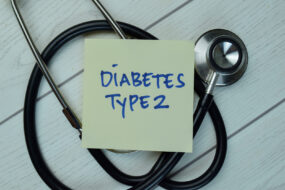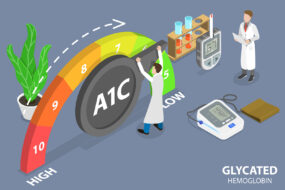
Table of Contents
What You Should Know About Diabetes and Insulin
If you are a woman planning to become pregnant, you should be familiar with the symptoms of gestational diabetes. Gestational diabetes occurs during pregnancy due to a hormone made by the placenta. Unless your blood sugar levels are under control, the condition can affect both you and your unborn child. In fact, if your blood sugar level is not controlled, it may lead to type 2 diabetes. And while there is currently no cure for gestational diabetes, there are ways to minimize the risks associated with it.
Gestational diabetes is a condition in which a woman develops diabetes during pregnancy
If a woman is diagnosed with gestational diabetes during pregnancy, she will have elevated blood sugar levels during pregnancy. Treatment for gestational diabetes involves lowering the blood sugar level so that the baby and mother are both safe. However, some complications may occur during the pregnancy. Overly large babies may have problems delivering through the pelvis. This can result in injury to both the mother and fetus.
A woman's body produces glucose from food, which is processed by the pancreas. Insulin, a hormone that facilitates the transfer of glucose from the blood to the body's cells, helps the body to use this sugar. But during pregnancy, the placenta, which connects the mother's blood supply to the baby, produces higher levels of hormones. These hormones reduce the effectiveness of insulin, causing blood sugar to rise. In turn, gestational diabetes occurs when the body cannot adjust to the increased glucose level, and the pancreas fails to function properly.
The condition starts when the mother's body can't produce insulin or use insulin properly, resulting in a buildup of glucose in the blood. In turn, glucose is converted to energy but is no longer accessible for the baby to use. This buildup of glucose in the blood is called hyperglycemia. If gestational diabetes is detected, there are steps that a woman can take to address it.
Treatment for gestational diabetes includes making changes in a woman's diet and getting a regular exercise routine. It is possible to lower the risk of developing type 2 diabetes after gestational diabetes is treated, but if the blood sugar level is high and the baby is still growing, treatment may be necessary. Often, a woman will require an early delivery to treat gestational diabetes.
Although it can cause severe complications, most women with gestational diabetes do well and go on to have healthy pregnancies. The risk of gestational diabetes is high if a woman has never been diabetic before she becomes pregnant. Gestational diabetes is often a symptom of another condition, like preexisting diabetes. A woman with diabetes should always seek medical treatment if she suspects gestational diabetes.
It is caused by a hormone made by the placenta
A woman's placenta is responsible for many important processes during pregnancy. It produces important hormones for the baby's development, removes harmful waste, and passes on immunity from the mother to the baby. A woman's placenta forms after the fertilized egg implants in her uterus. During pregnancy, the placenta grows and develops, starting as a few cells and continuing to increase in size until delivery.
The placenta synthesizes many different hormones, including estrogen, progesterone, and luteinizing hormone. These hormones control many different aspects of a woman's health during pregnancy. In addition to controlling the growth of the placenta, these hormones also affect the mother's ovarian and uterine physiology. Progesterone is often called the pregnancy hormone, as it promotes the development of the endometrium and influences the survival of the conceptus.
Some women experience vaginal bleeding during pregnancy. This is not an absolute indicator of a placental problem, but it should be taken into account. Not only is vaginal bleeding a sign of placental dysfunction, but also an abnormal formation of the placenta, which is often linked to other problems during pregnancy. It can also result in pregnancy complications like preeclampsia or fetal growth restriction. Placental problems can also lead to the onset of pre-eclampsia, fetal growth restriction, and stillbirth.
It can lead to type 2 diabetes
When insulin is not produced properly, glucose builds up in the blood, leaving the body's cells starved for energy. Scientists are not entirely sure why this happens, but it might have something to do with pancreatic dysfunction, cell signaling, and regulation. However, there is an underlying cause. In most cases, a combination of several factors are responsible for type 2 diabetes. Here is what you should know about diabetes and insulin.
You may have been prone to type 2 diabetes because you were overweight or obese. The risk increases if you have a family history of the disease. Also, people with Asian heritage are at an increased risk for developing this type of diabetes. You can fight the risk factors and protect yourself from Type 2 diabetes. By eating a balanced diet, you'll have a better chance of controlling your blood sugar levels and living a healthy lifestyle.
You can also develop this condition if you're overweight or inactive. Both of these factors make you more susceptible to type 2 diabetes than people who are not overweight or inactive. Although lifestyle is crucial, your genetic makeup may be a factor. If you exercise regularly and make wise food choices, you may avoid developing type 2 diabetes. Getting more exercise is also important for people with diabetes, as it can reduce the risk of the disease.
If you are concerned that you have type 2 diabetes, it's important to get an A1C test done. You should have your blood sugar levels checked several times a year. If your blood sugar level is stable, experts recommend testing twice a year. If your blood sugar levels are unstable, testing more frequently is recommended. Make sure you stay on track with your doctor's appointments and follow all the recommended guidelines. Lastly, you need to keep checking your feet daily. If you don't take care of your feet, you might be exposing yourself to severe complications.
You can reduce your risk of developing type 2 diabetes by reducing your stress. Try to avoid stressful situations, reduce your workload, or practice meditation and mindfulness. Another important factor is getting enough sleep. Most adults should get between six and eight hours of sleep a night, so try to cut back on screen time and try to sleep in a dark room. Try to stay away from sweetened drinks and alcohol before bedtime, as they can spike your blood sugar levels and make it more difficult to get the sleep you need.
It can affect your baby if your blood sugar levels are not under control
While pregnancy is a time for gaining weight, the body needs special care to ensure that blood sugar levels are under control. Not only does your blood sugar level affect your baby, but your own. You should aim for a level between 4.0 and 5.5 mmol/L during fasting and less than 7.0 mmol/L two hours after eating a meal.
Your doctor may also advise you to consider an elective caesarean delivery if you cannot deliver the baby naturally. In some cases, high blood sugar levels during labour can cause the baby to produce more insulin than usual, increasing the risk of low blood glucose after birth. If you have gestational diabetes, you should closely monitor your blood glucose levels and seek medical attention if you feel they are becoming out of control.
Insulin injections during pregnancy should be given in the abdomen, as this improves the absorption of the medication. You can inject insulin in any spot in the abdomen, such as where an inch of belly fat can be pinched. In some cases, the back of the arm is used. As with any medical condition, frequent contact with your doctor is important. You may want to review your blood glucose levels and insulin dosages every week. If your blood sugar levels are within a normal range, you can return to your regular dosage and tablets.
High blood glucose during pregnancy can cause birth defects and increase the risk of miscarriage. The risk increases with increasing levels of hemoglobin A1C and glycated hemoglobin. High blood glucose can also affect your baby's weight and size, as high blood sugar increases the chances of the baby being large. Furthermore, if you have diabetes before conception, you should consider using diabetes medications.
A newborn born to a mother with diabetes is also vulnerable to low blood sugar. When a baby is born, a diabetic mother's body will produce extra insulin, which can lead to dangerously low levels of blood sugar. The insulin she produces during pregnancy works on a high blood sugar level, and the baby's body will need glucose to balance it. Symptoms of low blood glucose should be treated as soon as possible. Your doctor will also check the baby's growth to ensure they are developing normally and healthy.










